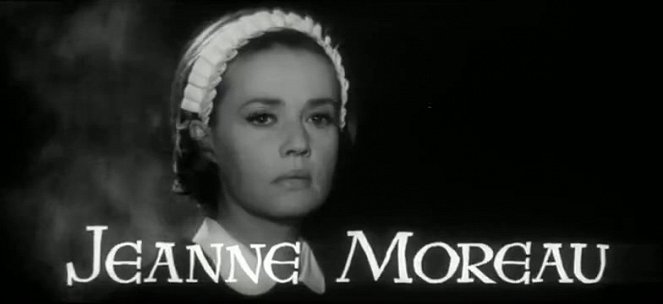Regie:
Luis BuñuelKamera:
Roger FellousBesetzung:
Jeanne Moreau, Georges Géret, Michel Piccoli, Jean-Claude Carrière, Françoise Bertin, Jean Ozenne, Dominique Zardi, Pierre Collet, Bernard Musson (mehr)Streaming (1)
Inhalte(1)
Das Dienstmädchen Célestine (Jeanne Moreau) aus Paris tritt eine neue Stelle in der französischen Provinz an. Sowohl bei der bürgerlichen Herrschaft als auch bei den Hausangestellten trifft sie auf Verkommenheit und zerfallende Sitten. Frankreich, Ende der 20er Jahre: Die junge, attraktive Célestine aus Paris tritt in der Normandie ihren Dienst als Hausmädchen einer bürgerlichen Familie an. In ihrem neuen Umfeld herrschen allerhand Unsitten: Madame ist pedantisch und verbittert, Monsieur ein notorischer Lustmolch, Schwiegervater Rabour ein nostalgischer Fetischist. Der Nachbar entpuppt sich als militaristischer Zänker und der Gärtner Joseph, ein sadistischer Faschist, macht Célestine auf zudringliche Weise den Hof. Das Hausmädchen weist ihn entschieden ab und verhält sich ihrer Umgebung gegenüber beobachtend und distanziert. Nur zu dem kleinen Bauernmädchen Claire verbindet sie ein liebevolles Verhältnis. Als der Schwiegervater stirbt, will Célestine kündigen und nach Paris zurückzukehren. Doch am Bahnhof erreicht sie die schreckliche Nachricht, dass die kleine Claire im nahen Wald vergewaltigt und ermordet wurde. Das Hausmädchen beschließt, zu bleiben. Zwar gibt es keine Spur des Mörders, doch Célestine verdächtigt Joseph. Um Gewissheit zu erlangen, lässt sie sich auf die Avancen des Gärtners ein. (arte)
(mehr)Kritiken (4)
A self-confident young woman arrives at an estate filled with fetishised objects in order to voluntarily become such an object herself. She uses her legs in particular to disrupt the established order and unsettle several men, whose belief in their own dominance slowly weakens. With cynical pragmatism, she transforms the space belonging to men and their sexual fantasies, which she easily infiltrated thanks to her innocent appearance and (semantically rich) maid costume. This rearranging of power relations is elegantly filmed in black and white in somewhat theatrical frontal shots, by means of which the director maintains the necessary distance from the characters. He doesn’t put himself in their shoes, but rather observes them with the detachment of an entomologist. With greater interest “for us”, basically only Celestine’s legs are provocatively filmed (and were purportedly the reason that Jeanne Moreau was cast in the role). Were it not for those legs, the hunting scenes and a few shots of fauna, you might wonder whether this is actually a Buñuel film. Its traditional theme, division of power between men and women, (un)controlled sexuality, chauvinism and tearing away of social masks are of course dealt with in the film, but they are hidden deeper below the unusually restrained surface. Similarly as the inhuman hell of the Second World War long remained hidden under a civilised veneer. 75%
()
This time around, my favorite Spaniard spared us the surrealistic scenes and focused on a realistic depiction of the French countryside of the 1930s with increasing tension, antisemitism, and a creeping authoritarianism. The world of a patriarchal society with distorted interpersonal relationships is seen through the eyes of a city servant who navigates between emotions and the physical needs of several men from different social classes. However, even seemingly banal life in a rural estate can bring risks, and at least one of the local residents hides a dark secret. Buñuel once again proves that he and I are tuned to the same wavelength and almost every film of his evokes a sense of kinship and joy in me. Overall impression: 90%.
()
Es ist nicht Buñuels bester Film, aber Michel Piccoli ist an seinem Platz, und Mirbeaus Entwurf gibt einen Vorgeschmack auf die kommenden Themen. Ich habe jedoch beschlossen, den Stoff in Zukunft mit anderen Verfilmungen zu vergleichen. Zumindest ist es mehr als akzeptabel, Moreau durch Léa Seydoux zu ersetzen. Hier leide ich schließlich auch für die Entscheidung, die Handlung in die 1930er Jahre zu verlegen (die sehr unglaubwürdig sind, da die Ausstattung völlig versagt), was nicht viel Sinn ergibt. Vielleicht nur den, den der Regisseur selbst bestimmt hat, nämlich dass er sich bereits an diese Zeit erinnert und sie ihm näher war.
()
Luis Buñuel cast the beautiful Jeanne Moreau in the lead role of Diary of a Chambermaid where she showcased her brilliance as an actress and delivered this quite powerful story in a truly captivating manner. Yet she is not the main asset; the direction and cinematography also play significant roles, but thanks to her, you truly get to see what life at an aristocratic countryside estate can be.
()

